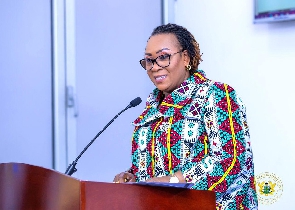Stakeholders in the aquaculture subsector have called on the Fisheries Commission and the Ghana Standards Authority (GSA) to develop a residue monitoring plan as part of measures to guarantee safe and high quality fish for consumers in line with international standards and export requirements.
This call was contained in a position paper presented by the Development Action Association (DAA) to the Fisheries Commission on December 19, 2022 at the Fisheries Commission Conference room.
Presenting the position paper, Joseph Wise Seyram Klu, an agribusiness consultant, said the residues in farmed fish are not tested at the moment in view of the absence of a residue monitoring plan for farmed fish.
This phenomenon has led to difficulties in ascertaining the quality of fish produced in aquaculture systems in accordance with the requisite food safety standards.
“A Residue Monitoring Plan is key to the requirement for farmed fish export into the EU market, and the absence of it is a barrier to entry for farmers who wish to export,” Mr Klu indicated.
The position paper also conveyed stakeholders’ call for the government, through the Ministry of Fisheries and Aquaculture Development and the Fisheries Commission to resource the Veterinary Services Directorate (VSD)’s National Food Safety Laboratory or the GSA’s Food Laboratory with a Liquid Chromatography – Mass Spectrometry (LC-MS) machine and its accessories to enable the testing of residues in farmed fish.
Francis De Heer, the Organizer of the National Aquaculture Association reiterated how critical it has become for the FC to operationalize an aquaculture biosecurity plan to help in managing bio-certification of fish farms and regulate aquaculture practices.
This according to him will require an urgent institution of farmer and consumer-oriented programs to promote aquaculture, safeguard sustainable water resource management and food safety.
“It will also ensure the protection of wild species and promote healthy, productive, and resilient water-use ecosystems”, he stressed.
Mr. De Heer stated that it has become very necessary for the Fisheries Commission to develop and establish a national aquaculture bio-certification program along with biosecurity self-assessment checklists for farmers and fisheries staff.
“The institution and implementation of a fish farm bio-certification program will minimize production losses and reduce the risks of pests and diseases affecting farmed fish and the environment as well as reduce the risk of losing market access for Ghana’s farmed fish,” he added.
Also speaking at the presentation, Emelia Nortey of DAA lamented the absence of documented aquaculture disease surveillance, and disease preparedness and control plans by the Fisheries Commission and called on the Fish Health Unit of the Fisheries Commission to engage the VSD and develop one for the aquaculture subsector.
She also charged the Fisheries Commission to strengthen ties and synchronize its operations with the VSD, FDA and GSA given their vital roles. Further, she called on the Fisheries Commission to resource technical officers to supervise the biosecurity plan and the bio-certification program as well as ensure the establishment of fisheries desks at the various Metropolitan, Municipal, and District Assemblies (MMDAs).
Receiving the position paper, Paul Bannerman, the Deputy Executive Director of the Fisheries Commission, thanked DAA for their efforts and GIZ, which has been supportive of this process through its Sustainable Employment through Agribusiness (AgriBiz) programme.
Business News of Thursday, 22 December 2022
Source: thebftonline.com
Aquaculture players request residue monitoring and bio-certification
Entertainment












